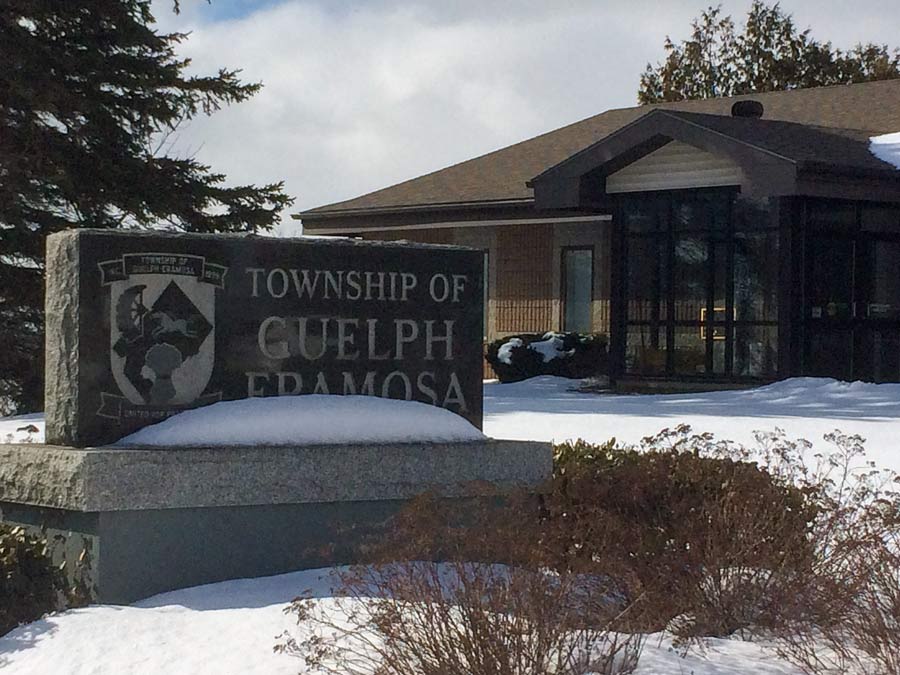BRUCEDALE – Guelph/Eramosa council will amend a boulevard maintenance and highway obstruction bylaw to clarify signs are not allowed on municipal boulevards.
Bylaw enforcement officer Ivan Lunevski proposed the amendment during a regular council meeting on March 20 to “solidify the expectation that signs are not permitted to be erected on the boulevards.”
The amendment is in response to a “significant amount of complaints with regards to signs,” Lunevski said.
He noted “they are just littered across the boulevards,” presenting “an unsightly state” and making it difficult to maintain boulevards.
He noted there is not currently a “sign bylaw” in the township but one could be implemented in the future.
He added permits are not issued for signs.
As is, the “alteration” of boulevards is prohibited, and “the placing of signage on the boulevards is essentially alteration,” Lunevski said. He recommended amending the existing bylaw to “include the definition of signs.”
Prohibited signs include lawn signs, business signs, and real estate signs, “whether they are fixed or one of those A-frame signs,” Lunevski noted.
Those signs should be placed on people’s private property, not on township boulevards.
Mayor Chris White was initially “a little leery” of the amendment as “small businesses need an opportunity sometimes to advertise.”
However, he noted “Highway 7 is fully provincial, so there’s no issues for us there.”
And Wellington Road 27 is under Wellington County jurisdiction, meaning signs are allowed unless someone makes a complaint.
“If they get a complaint they pull them,” White noted.
He said he does not want a “bylaw to chase every sign that goes up all over the place.
“Sometimes they become unsightly and we need some ability to control, but I don’t want to stop some kids who are having a lemonade stand and they put a sign up on the boulevard,” he said, noting he understands “that’s not the intent.”
Councillor Corey Woods said he thinks the amendment is “reasonable,” but noted he does not “want to be chasing around every lemonade stand or … garage sale” either.
Councillor Mark Bouwmeester said he supports the amendment, noting “the impact will be on people that are plopping signs for advertising more than anything else – and unfortunately they may not be happy, but at times of year it does get a bit crazy actually so I understand what (Lunevski is) saying and I think it’s a good idea to enforce it.”
White asked if prohibited signs include “real estate signs that lead to a house for sale on a different street.”
Lunevski said “the expectation is for any ‘for sale’ sign … to appear at the property’s address.” For “directional signs, usually most municipalities only permit open house signs to be posted publicly to provide direction to where a current open house is hosted.”
These signs will still be allowed, Lunevski said, as the bylaw uses “discretion to permit temporary signs” that are only “up for a half a day.”
White said the amendment “seems reasonable” to him, as businesses will be allowed to continue to advertise on private property and signs will still be allowed on Highway 7.
However, he advocates for maintaining a “rural small-town feel,” noting yard sales and lemonade stands are “part of living in a small town.”
White said he feels “hesitant when we start urbanizing like this,” and recommends bylaw enforcement officials inform people about the problem with their signs, “so they understand what we are doing and why” and give them a “grace period” to remove their signs. “I just don’t want their signs to disappear without them knowing what’s going on,” White added.
All councillors voted in favour of the amendment.



